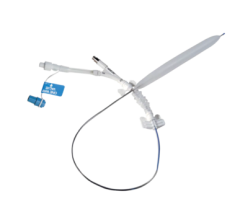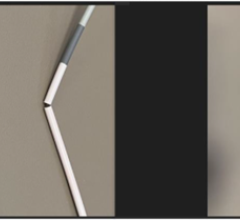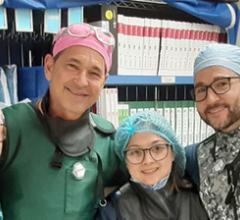
December 15, 2011 — Neovasc Inc. announced it has received the CE mark designation for its Reducer product for the treatment of refractory angina. CE marking confirms the Reducer conforms to the applicable European Directive; this allows the product to be marketed for implantation in patients in all member states of the European Union, the European Economic Area and Switzerland.
The Neovasc Reducer is a novel device designed to treat the millions of patients worldwide who suffer from refractory angina; it is a painful and debilitating condition that occurs when the coronary arteries deliver an inadequate supply of blood to the heart muscle. Currently it affects an estimated one million patients in Europe, who often lead severely restricted lives. The incidence of refractory angina is growing, yet current treatment options are limited.
Christopher White, M.D., professor of medicine and system chair for cardiovascular diseases, the Ochsner Clinical School, University of Queensland, commented, “The Reducer appears to be a very promising tool for treating patients with the disabling ischemic chest pain known as angina. Achieving the European CE mark will allow this technology to be used in ‘real world’ patients and sets the stage for much needed clinical trials in the U.S." White is also medical director at the John Ochsner Heart & Vascular Institute, Ochsner Medical Center.
The device is implanted in the coronary sinus vein using minimally invasive techniques that are similar to implanting a coronary stent. By modulating blood flow from the coronary sinus—the main vein exiting the heart—the Reducer acts to increase the perfusion of oxygenated blood to certain areas of the heart muscle; this reduces the pain and disability caused by the condition.
“The Reducer’s CE mark designation is good news for European refractory angina patients, who previously had exhausted available treatment options but who will now have access to this novel treatment for relieving their symptoms and improving their quality of life,” said Shmuel Banai, M.D., medical director of Neovasc. “In addition, the Reducer is implanted using a procedure that is minimally invasive and requires less than 20 minutes to complete.”
Results of a published prospective three-year clinical study have demonstrated the product is safe and effective at providing relief of angina symptoms. Neovasc is presently enrolling patients in the COSIRA (Coronary Sinus Reducer for Treatment of Refractory Angina) trial, a multicenter, sham-controlled, randomized, double-blinded study. It has been designed to provide additional controlled, statistically significant data to further demonstrate the clinical efficacy of the Reducer and to support physician education and marketing efforts. It will also support additional regulatory applications to make the Reducer available to the millions of refractory angina patients worldwide that could potentially benefit.
For more information: www.neovasc.com


 June 13, 2024
June 13, 2024 









